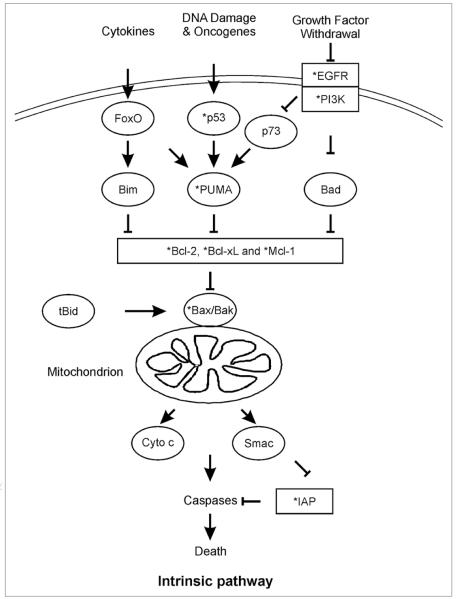Figure 2.
The intrinsic pathway is deregulated in cancer. A wide range of stresses activate the intrinsic pathway in mammalian cells, which is regulated by the Bcl-2 family. The death signals initiated by various stresses are first transmitted through the BH3-only proteins that are activated through transcriptional or posttranslational modifications as shown by several examples. Inhibition of the anti-apoptotic Bcl-2 family members by BH3-only proteins leads to activation of Bax/Bak, subsequent mitochondrial dysfunction, and cytosolic release of apoptogenic proteins such as cytochrome c (Cyto c) and SMAC/Diablo. Following disruption of mitochondrial integrity, a caspase activation cascade is triggered to execute cell death irreversibly. tBid links the extrinsic pathway to the intrinsic pathway and mitochondria. Common genetic or epigenetic alterations (*) in both anti-apoptotic proteins (rectangle) and pro-apoptotic proteins (ellipse) are found in cancer.

